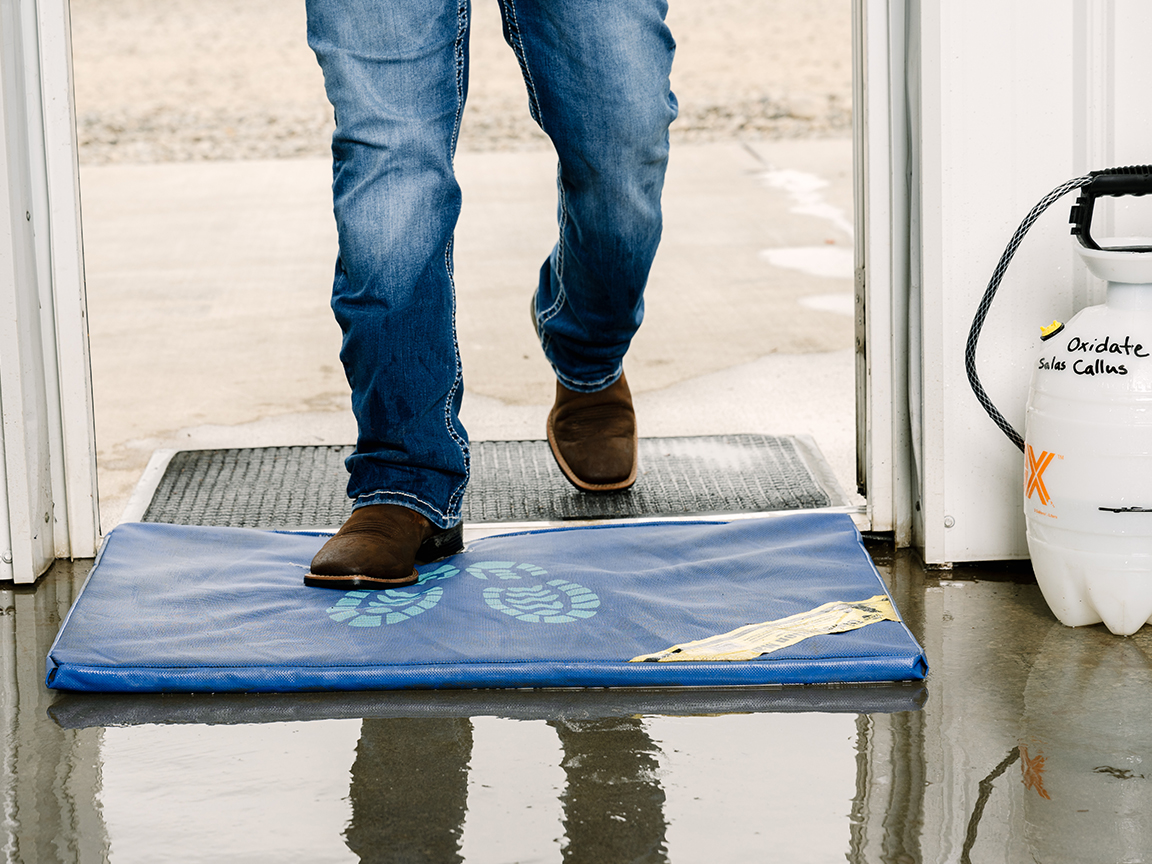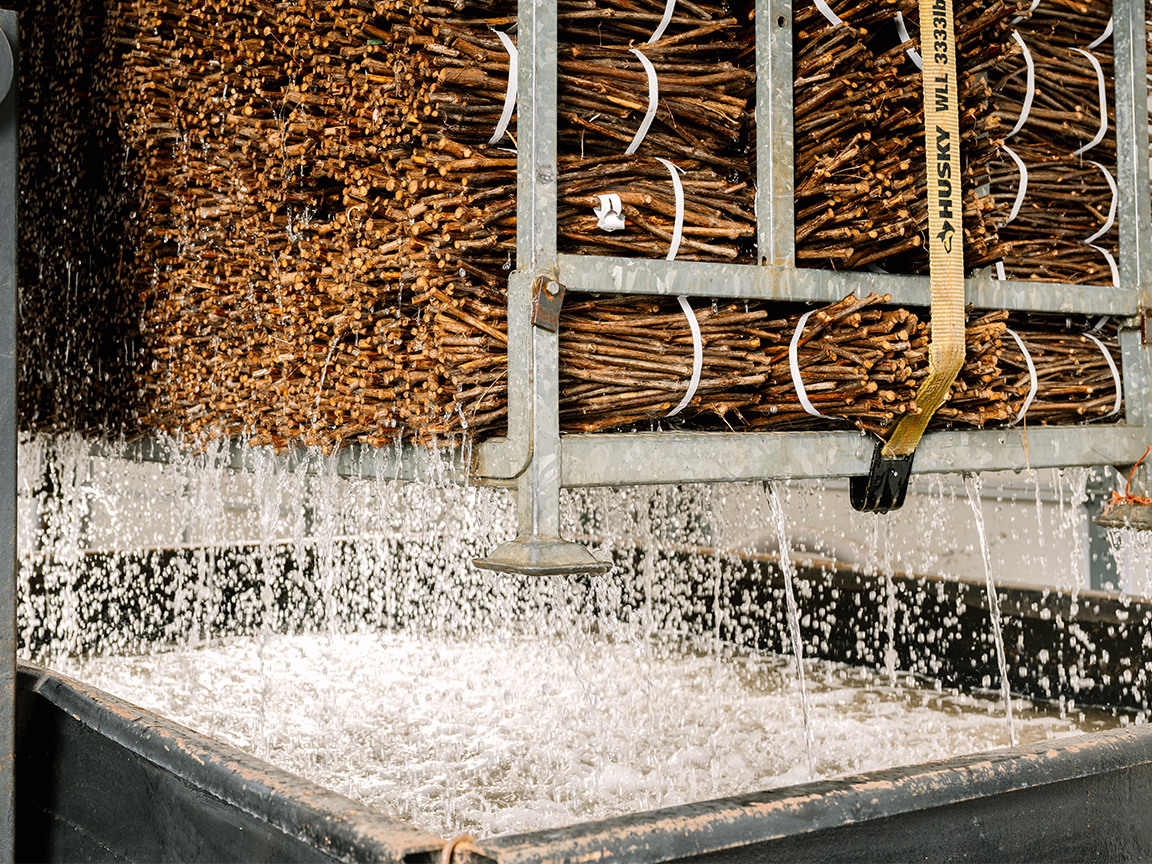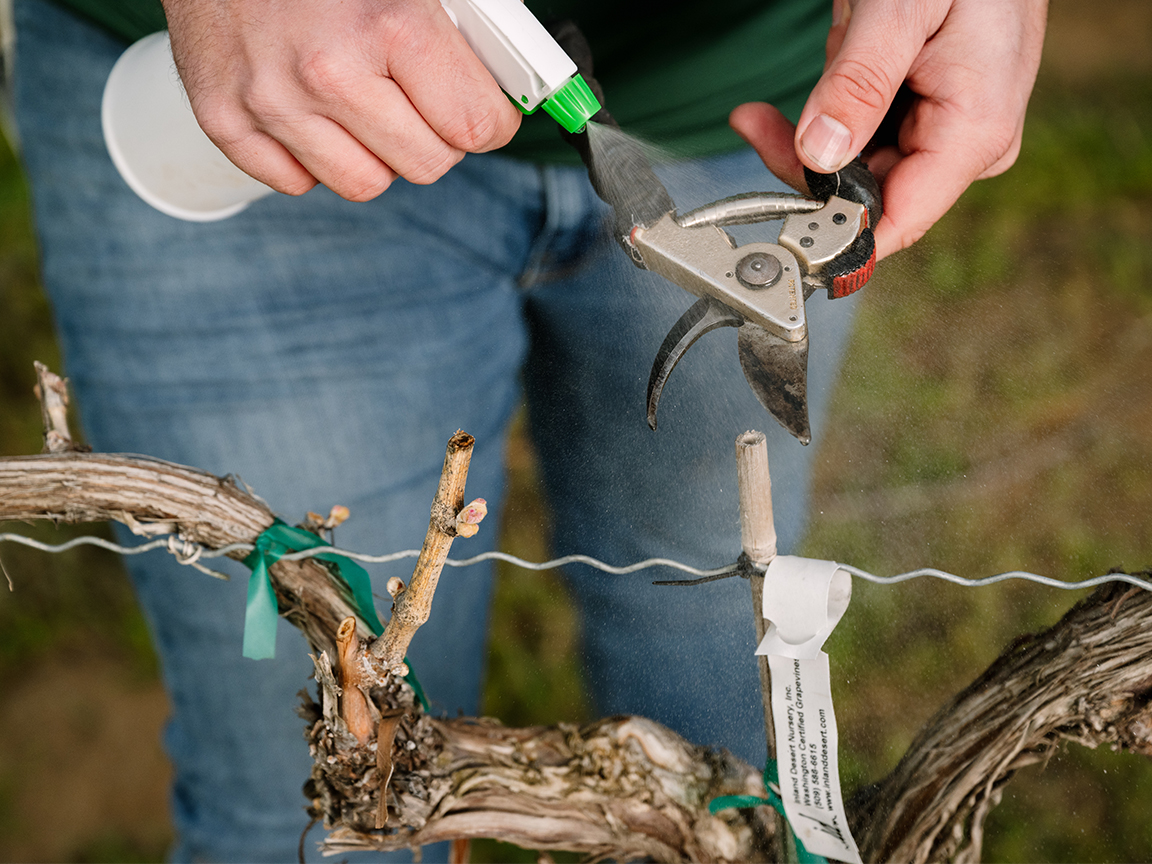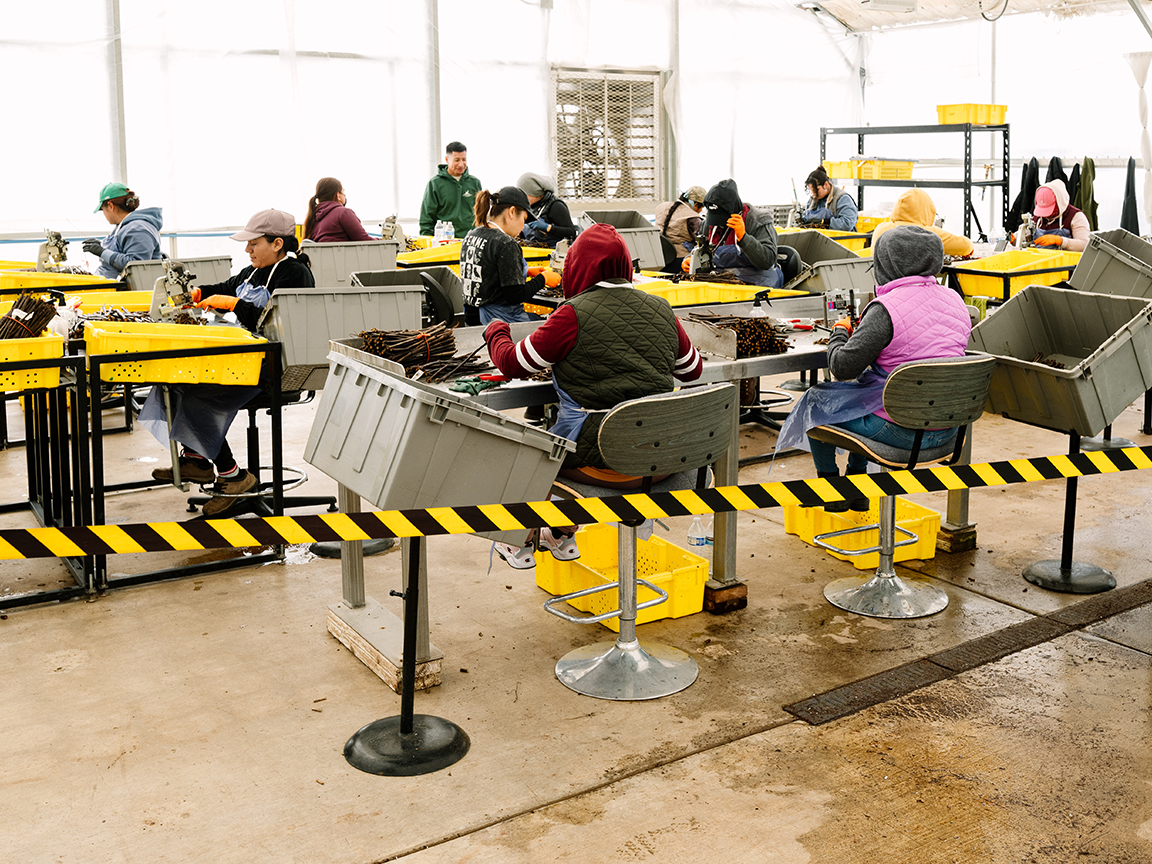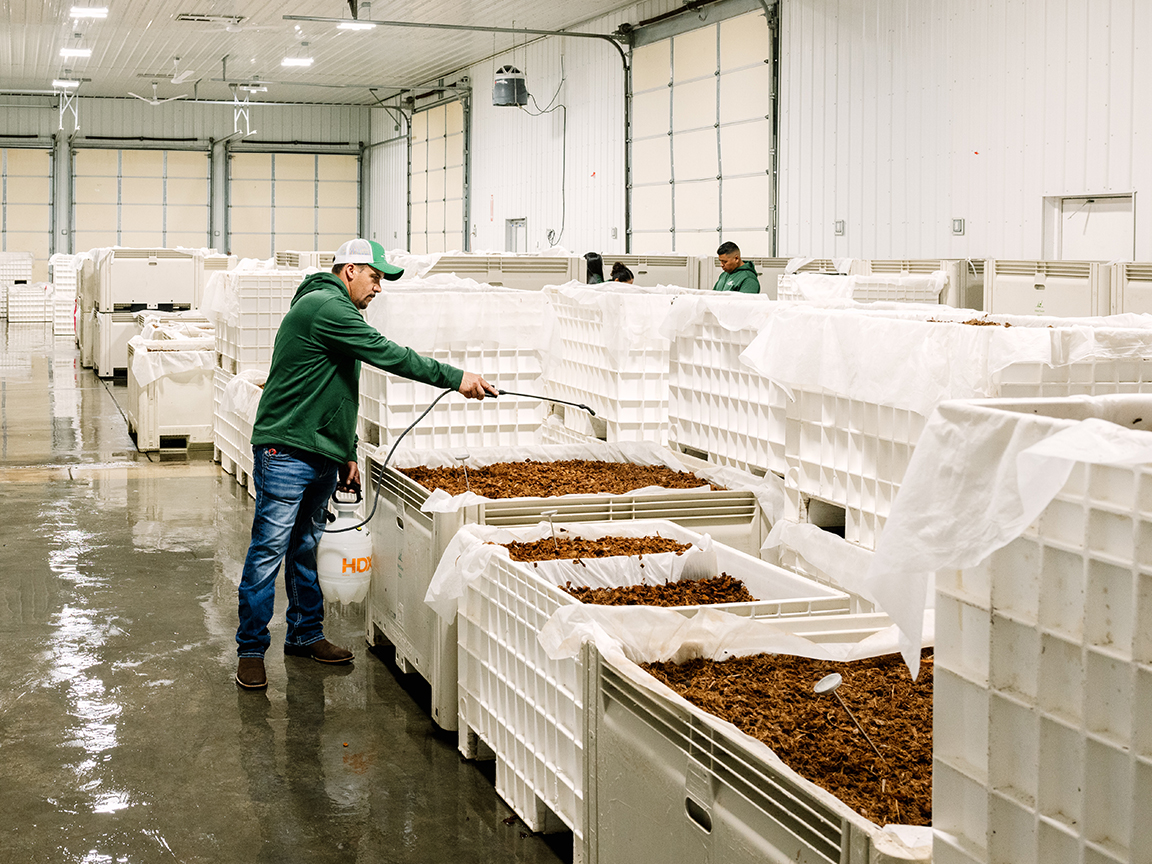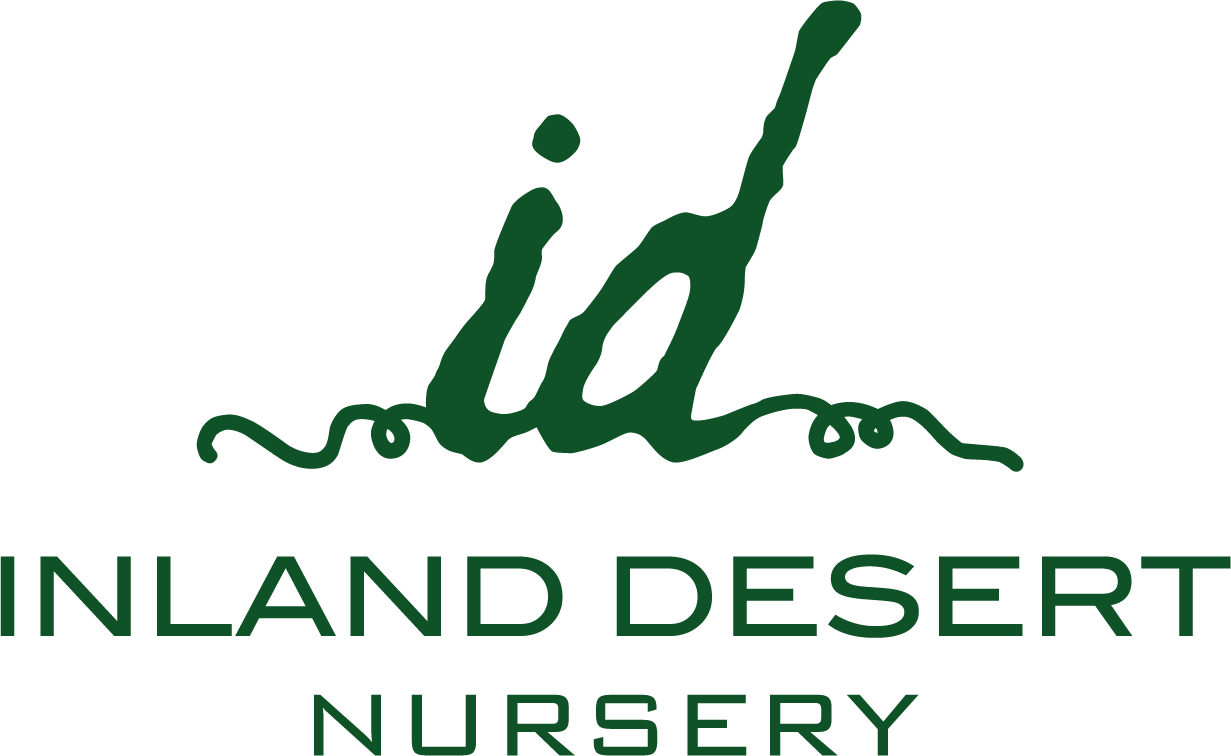Clean Vine Protocols
Starting with National Clean Plant Network (NCPN) foundation material and maintaining strict adherence to state nursery certification regulations are critical to a nursery’s clean plant production process. However, biosecurity risks still exist, potentially compromising a nursery’s ability to consistently deliver clean nursery stock.
At Inland Desert Nursery, we continually address those risks by designing and implementing production protocols above and beyond those required by regulators. We call this comprehensive approach “Clean Vine Management” (CVM).
Read on to learn more about our “clean vines without compromise” approach to the future of your vineyard:
Disinfection Followed by Hydration
Immediately following harvest and prior to cold storage, all budwood and rootstock is disinfected and hydrated (as needed) using our automated Peracetic acid (PAA) dosing system. This disinfection process reduces the risk for cross-contamination and ensures clean cutting surfaces prior to entering our production process.
Ongoing Sterilization of Facilities, Equipment, tools and Substrates
Prior to and throughout material processing, all production rooms and equipment cutting surfaces are sanitized with Aqueous Ozone. Plastic callus bins are pressure washed using 175°+ water. Substrates are hydrated and pasteurized in our 175°+ hot treatment tank. Prior to and during bench grafting, all cutting tools and grafting blades that come in contact with plant material are disinfected using a 90% alcohol solution.
Callus bins are inoculated with Trichoderma, a beneficial fungi used to mitigate disease pressure, promote plant growth, improve nutrient utilization efficiency, enhance plant resistance, and improve agrochemical pollution environment. During callus, Oxidate is on-hand to ensure primary buds are kept clean and actively growing, free of mold and mildew pressure.
Hot Water Treatment of Raw Materials and Finished Vines
Just prior to grafting, both rootstock and scion destined for immediate callus undergo a sequence of dip tank PAA disinfection and 125° hot water treatment for added biosecurity and uniform performance in callus.
At the completion of our field grown dormant grapevine growing season, each graded finished grapevine is washed free of soil, bundled, disinfected and hot water treated to ensure freedom from any potential soil borne pests and pathogens.
*Long Duration Hot Water Treatment is offered as an additional service for growers that are concerned about the risk of Crown Gall expression
Packing for Storage – Fungicide Treatment and Moisture Removal
Before entering our humidified and sanitized cold storage, both disinfected raw materials and finished dormant vines are layered without media into plastic-lined bins.
A fungicide is applied to each layer and pasteurized Coir Mats are used to wick excess moisture and prevent water films.
